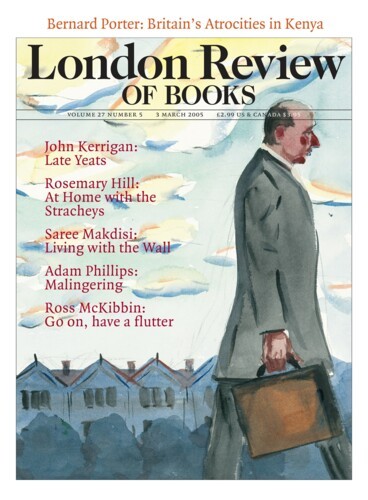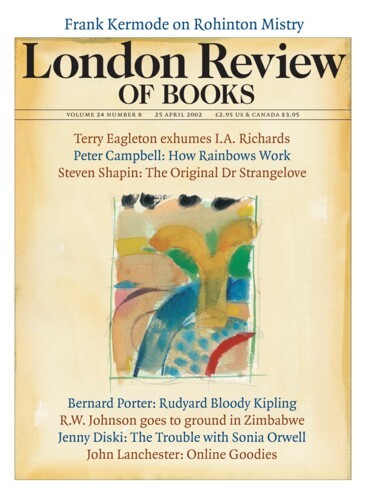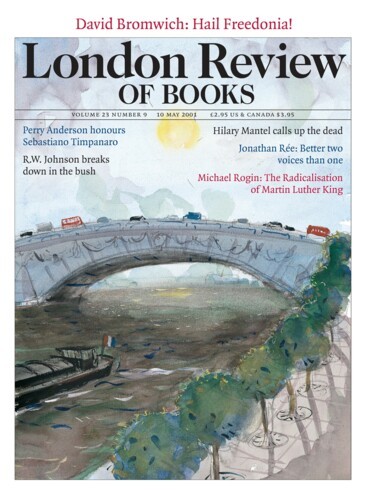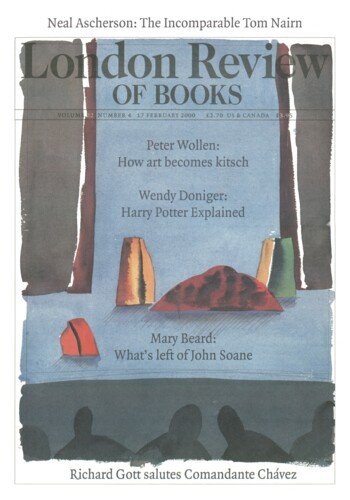Richard Gott
Richard Gott was for many years a Latin America correspondent and later the literary editor at the Guardian. His books include Cuba: A New History and Hugo Chávez and the Bolivarian Revolution. He died in November 2025.
Shoot them to be sure: The Oxford History of the British Empire
Richard Gott, 25 April 2002
A new history of the British Empire might be expected to concern itself with such issues as the construction of military dictatorship through the imposition of martial law; the violent seizure and settlement of land; the genocidal destruction of indigenous peoples (and their culture and environment); the establishment of what is now called ‘institutional racism’; and the continuing...
Breakdown in the Bush
10 May 2001
Do they drink the oil?
17 February 2000
Robinson’s Footprints: Hugo Chávez and the Venezuelan Revolution
Richard Gott, 17 February 2000
The mountains of Venezuela rise up almost sheer from the shores of the Caribbean, with gashes of red earth below and vivid green forest above, the peaks entirely lost in grey cloud. From the aeroplane window I have often liked to imagine this as the land on which the local Indians stood when they first discovered Columbus on their beach in 1498 – although he landed some four hundred miles to the east, on the Peninsula de Paría, across the water from Trinidad.
Pieces about Richard Gott in the LRB
Perfidy, Villainy, Intrigue: The Black Hole
Ramachandra Guha, 20 December 2012
In 1931, Gandhi visited England to discuss India’s political future. In a speech at Oxford, he hoped that when the empire finally ended, India would be an ‘equal partner with Britain,...
America first
Felipe Fernández-Armesto, 7 January 1993
‘See America first’: the old tourist-office advertising slogan made it sound easy. The most famous moment in the history of exploration, however, is also one of the most baffling. In...
Read anywhere with the London Review of Books app, available now from the App Store for Apple devices, Google Play for Android devices and Amazon for your Kindle Fire.
Sign up to our newsletter
For highlights from the latest issue, our archive and the blog, as well as news, events and exclusive promotions.




